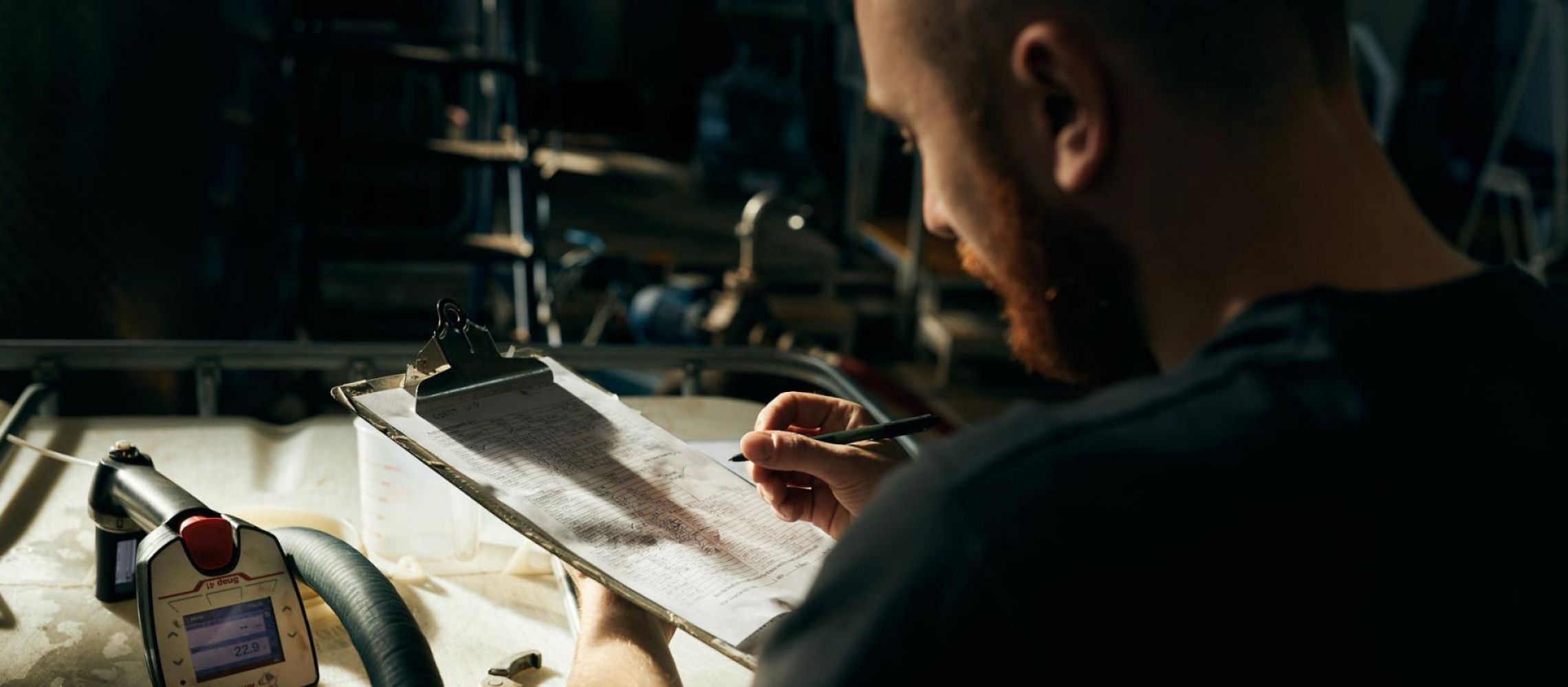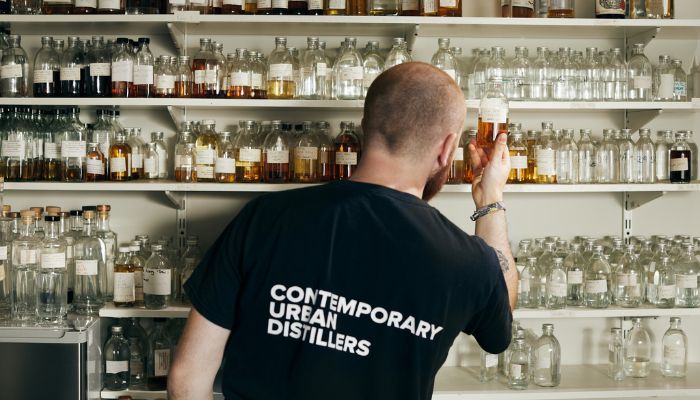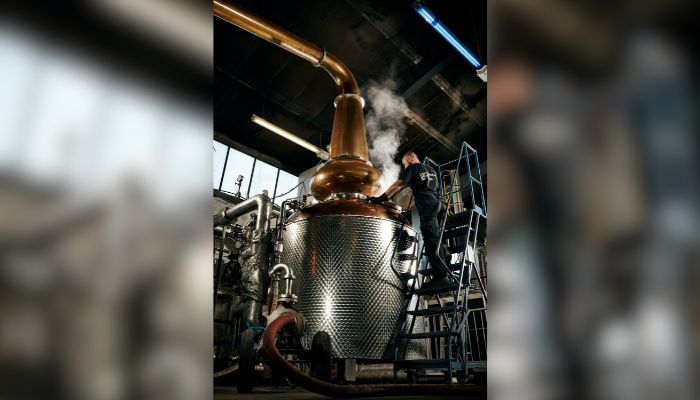Submission Deadline
28 February 2026
Judging
Date
24 & 25 March 2026
Winners Announcement
22 April 2026
28 February 2026
24 & 25 March 2026
22 April 2026

Welcome to our "Know Your Distillers" series, which features industry professionals. Today, we present a distiller with a musical background who switched to distilling after working at a well-known whisky bar in Speyside. Aeden Cormack is currently working at The Glasgow Distillery Co. with a team of six distillers and give insights into their daily routines, important distiller abilities, and the issues that the spirits sector faces. In our exclusive conversation, you'll learn about Aeden's journey, inspirations, and perspectives on the future of the beverage business.
I studied music before venturing into the brewing and distilling industry, earning an honors degree from a music institute in England. It was in 2019 that I returned to Scotland to study an MSc in Brewing and Distilling after gaining an interest in whisky while working for a year and a half at the Quaich bar in Speyside. They stock over 600 whiskies and I lived only a few miles away from Glenfiddich, Aberlour, The Macallan, Ballindalloch and Cragganmore, to name a few. I also spent two years working in two breweries in Wales and Scotland before redirecting into distilling. Everything I learnt in both breweries was transferable to distilling.
I am a distiller working within a team of 6 distillers and we all come from different backgrounds. We start the distillery up at 6am by getting the boiler switched on and the cooling tower flowing. Our 4 stills get steamed-on and the spirit starts flowing by 6.30am. We have a few different checks to do through-out the day and the spirit cuts and general monitoring. It’s then discharging the stills once all the alcohol has been collected into the feints receivers. It's then re-charging the stills for the backshift starting at 1:30pm. We usually have things back online for when they arrive and hand over any extra tasks.

Image: Aeden Cormack
The taste of whisky and its history has been a big motivator. The science behind it all is also very interesting which has kept it new and always refreshing. I have always enjoyed creating things, whether that's something in the kitchen or designing new beer recipes.
Patience, multitasking, problem solving and planning.
We often attend whisky festivals to help out pouring some of our drams and the proper whisky geeks are always keen to get technical with us. I think the general whisky drinkers today are very switched on and are looking for that transparency, which we can give them.
Being able to put your hand to anything. Being consistent with double checking valves that should be shut or open. Being able to fix things is always a bonus and the ablility to multitask without getting flustered.
The early mornings can take some getting used to, or the extreme cold (in Scotland).
Over-saturation and energy costs.
It's not spirits or whisky related, but I'm currently learning how to build guitars. I've always enjoyed a challenge and maybe one day you’ll see a guitar partly made out of cask staves.
A good work life balance and the ability to do things for yourself.
A half and half goes down a treat. A dark beer and a smoky dram, in a pub with some trad music playing in the background.
Malt whisky: the complete guide, Whisky: technology, production and marketing
It' a team effort in tasting, but our blending is mainly reserved for the head distiller. It's a lot of sampling of the various casks we have available and trying them at different ABVs; particularly so if they're destined for a special release.
[[relatedPurchasesItems-63]]
Anything left in the stills is discharged into our effluent holding tank which holds our pot ale and spent lees. This gets taken away and disposed of by an environmental waste company roughly twice a week.
At The Glasgow Distillery we’re producing a range of innovative products across whisky, gin, vodka, and rum. Within malt whisky production, our focus on producing a variety of spirit styles, long fermentations, a very high quality initial spirit and then the use of a wide range of active casks and cask finishes enable us to produce a wide spectrum of flavour to really showcase the versatility of whisky that can come out of one distillery. From delicate, fruity and citrus-forward whiskies; to rich, robust and bold single malts we’re able to showcase a large array of flavour and styles. This experimentation and the variety of our output is the reason that we are quickly gaining a reputation as one of the most exciting new distilleries in Scotland.
We create complexity by fermenting for over 72hrs and letting the yeast do its work. We use two different types of yeast for our different spirit styles, each of which have their own character.

Image: Aeden Cormack
Our products are available in over 25 territories globally - due to our size and scale our products are on allocation per market for the foreseeable future and this has been a product of organic demand arising from our story, quality of product and presentation. Our sales and marketing team look after each market and develop strategies and individual focuses for each distribution partner depending on local factors, opportunity, and culture. When assessing new markets, the long-term viability is a key metric as we are look to develop lasting relationships as we grow in scale and output.
I think the rules on Scotch will start to change even more, allowing more freedom for distilleries to create new and interesting products. Talking about barley terroir and cask terroir, it's already started but I think it will get more popular.
Show your spirits where it matters. Get your products tasted by top bartenders, buyers and experts at the London Competitions — enter now.